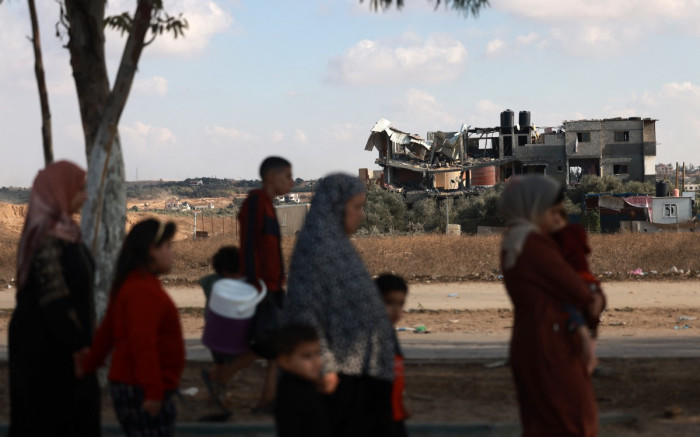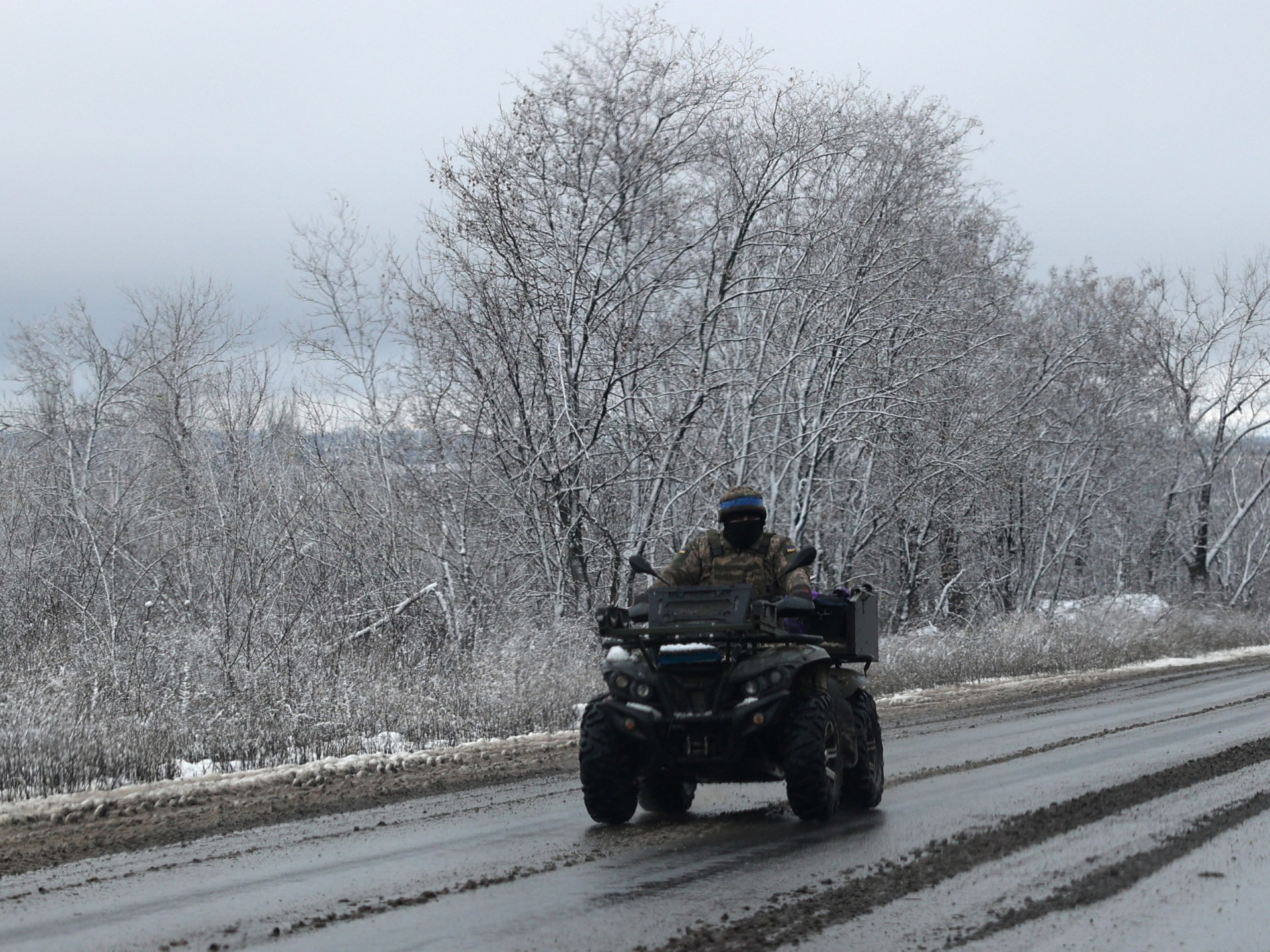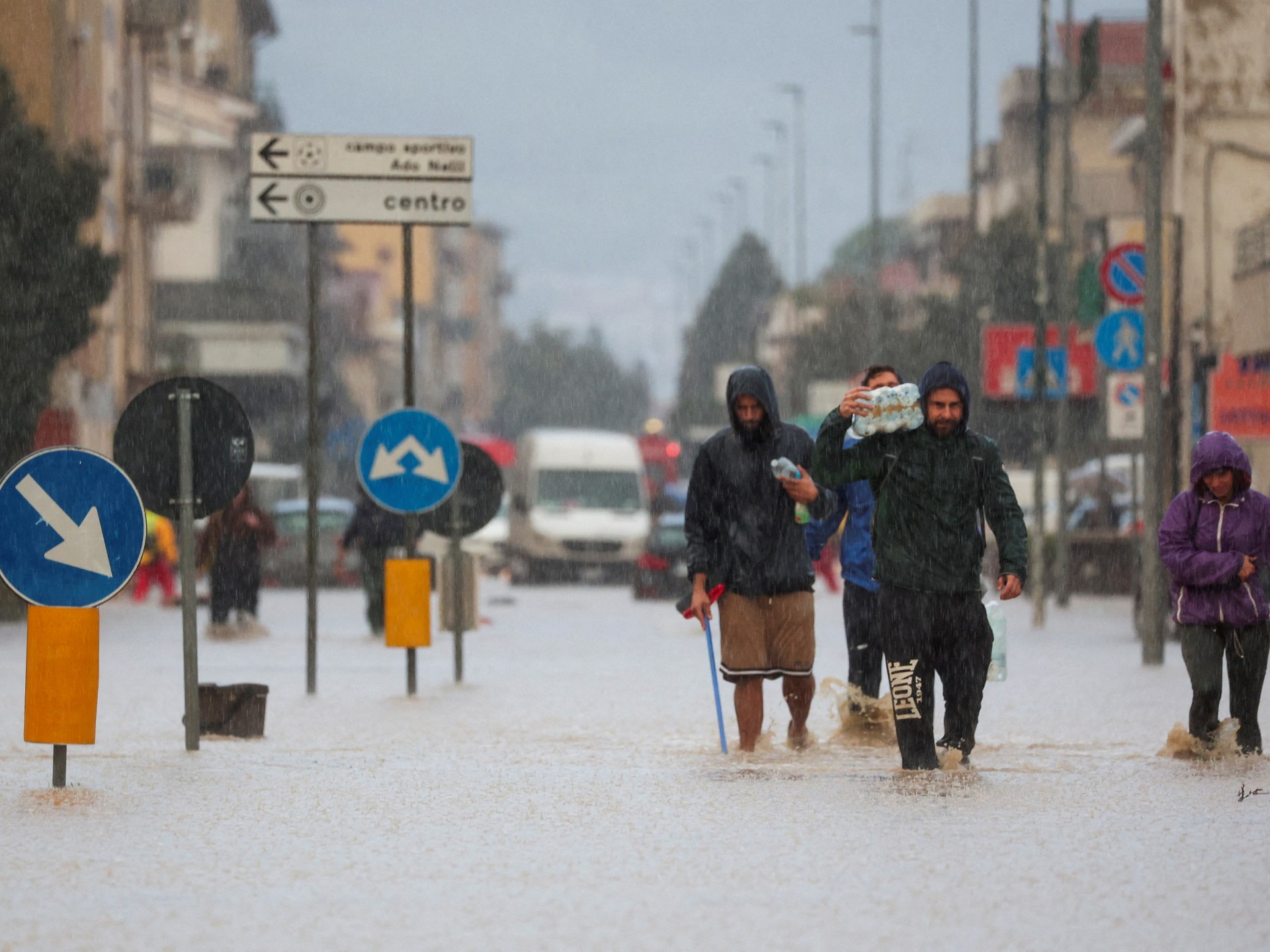
The heat still lingered as families left their homes in northern Gaza under Israeli bombardment in early October, but as winter approached they struggled to find clothing for their children to keep them warm in the rain and bitter cold hold.
Palestinians flee along a road from Gaza City and other parts of the northern Gaza Strip towards southern areas on November 18, 2023, amid ongoing fighting between Israel and the Palestinian Hamas movement. Image: AFP
RAFAH, Palestinian Territories – When Khulud Jarboueh and her children fled their home in the northern Gaza Strip to escape Israeli bombardment in early October, the little ones wore only shorts and T-shirts.
The heat of late summer was still lingering back then. But now she’s sifting through piles of clothes looking for something to keep her warm in the rain and bitter cold.
“We left Gaza City more than a month ago with 20 family members,” the 29-year-old told AFP at a second-hand clothing stand outside a school in Rafah run by the UN Agency for Palestine Refugees (UNRWA). becomes.
They left the north of the Palestinian territory after Israel warned people to flee south because it was safer there.
The exodus came after the Israeli military began a relentless bombardment of the Gaza Strip after Islamist Hamas militants stormed the border on October 7, killing about 1,200 people, mostly civilians.
They also captured around 240 hostages in attacks, which led to massive retaliation from Israel. According to the Hamas government in Gaza, around 11,500 people have been killed in Israeli attacks, including thousands of children.
Now Jarboueh and her family sleep on the floor of the UNRWA school.
“We didn’t take any clothes with us. But now it’s cold and I have to buy winter clothes,” she said at the stall where clothes are available for one shekel (about $0.25) each.
‘NO OTHER CHOICE’
Even before the war, life in the Gaza Strip was difficult.
The United Nations (UN) estimated that the blockade that Israel had imposed on the territory since 2007 had “hollowed Gaza’s economy” by 2022.
“The movement restrictions also hinder access to health and other essential services, as 80% of Gazans rely on international assistance,” said UNCTAD, the UN Conference on Trade and Development.
Unemployment in the densely populated area between Israel, Egypt and the Mediterranean was 45%.
Today, according to the United Nations, all 2.4 million people in Gaza are starving, and 1.65 million have been displaced by the war. With almost half of Gaza’s homes destroyed or damaged, poverty will only get worse.
“It’s the first time in my life that I had to buy used clothes,” Jarboueh said. “We are not rich, but I can usually afford to pay 10 shekels for a piece of clothing for the children.”
“Now they’re coughing because it’s so cold. I do not have another choice.”
She said she was sure the old clothes were “full of germs.”
“But you have to put them on immediately. I don’t have the water to shower my children, let alone do the laundry.”
On a street lined with stalls, hundreds of Palestinians held up items to check sizes or compare fabrics. The temperature has now dropped and rainfall is the order of the day.
“THIS IS NOT LIFE”
Farmer Walid Sbeh said he had been evicted from his land and no longer had a shekel to his name. He camps every night at the UNRWA school with his wife and 13 children.
“I can’t bear to see my children starving, still wearing their summer clothes, and I know I can’t buy them anything,” he told AFP.
“This is not life. They drive us from our homes and kill us in cold blood. If we do not die in the bombing, we will die of hunger or thirst, of disease and cold,” he said.
Sbeh said when they left their house after the bombing, they brought blankets with them.
“But on the street the Israeli soldiers told us to drop everything and hold up our hands.”
He said some people gave them warmer clothes that their own children had outgrown.
Adel Harzallah, who runs a clothing store, said his stock of winter pajamas sold out within two days.
“The war began as we waited for winter clothing to arrive. She was supposed to come across the border,” but after the October 7 attacks in Israel, the war ended.
Now his goods such as food, drinking water and fuel were stuck in containers, only to be released again at a high price.
A potential customer left Harzallah’s store disappointed.
“Seventy shekels for a jacket? I can’t pay that – I have five children,” she said.
Abdelnasser Abu Dia, 27, told AFP he “didn’t have enough to buy bread, let alone clothes.”
For a month he only had the clothes in which he had fled.
But as the temperature dropped, “someone gave me and my kids sports jackets. We’ve been wearing them non-stop for a week.”






Recent Comments